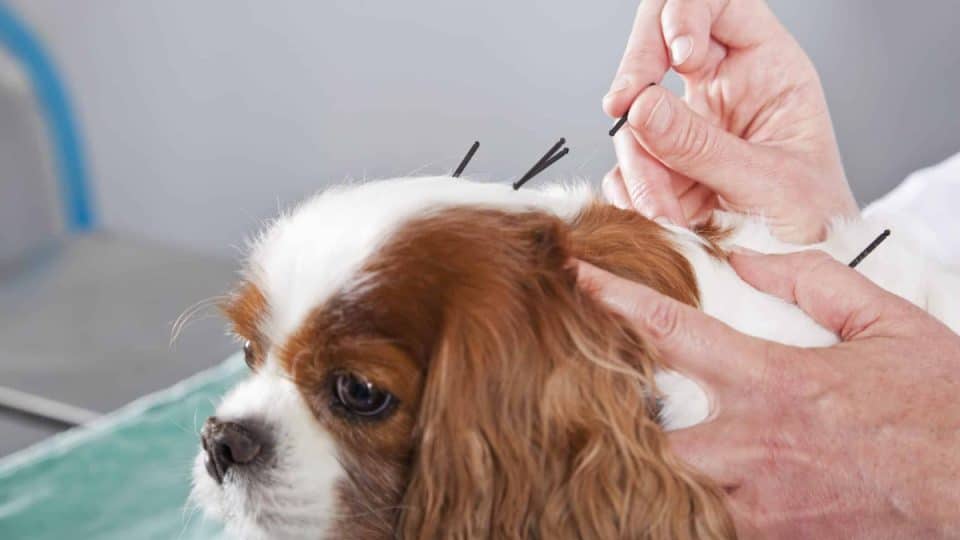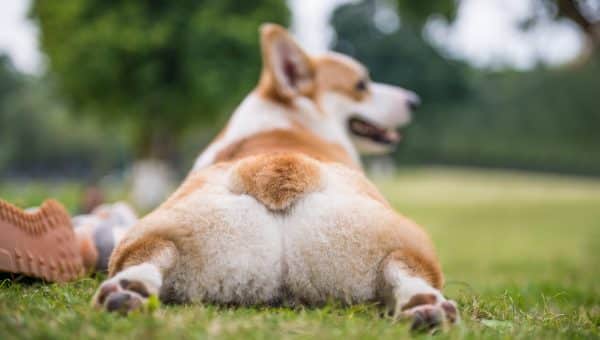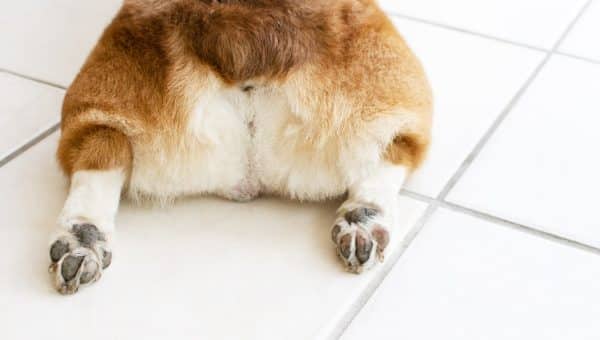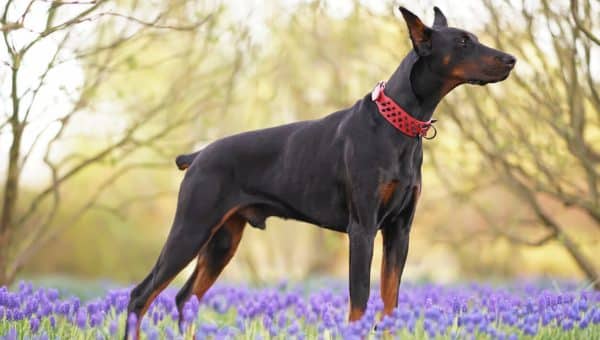- Not a substitute for professional veterinary help.
For centuries, acupuncture has been used as an alternative treatment for chronic pain in humans. But it can treat certain conditions in dogs too! Acupuncture for dogs can help treat a wide range of conditions, from arthritis and joint pain to nerve pain and gastrointestinal issues.
Acupuncture works on dogs by helping correct energy imbalances, and many pet parents report that their dog seems very relaxed after a session. This alternative treatment is suitable for dogs of all ages and sizes. It’s a particularly popular option to reduce joint pain and inflammation in senior dogs, but can also be useful for conditions like intervertebral disc disease (IVDD) in younger dogs.
Canine acupuncture is often combined with traditional veterinary medicine, especially if used to treat a specific infection or disease. Only a certified veterinary acupuncturist should carry out acupuncture on dogs.
Let’s dive into what dog acupuncture can treat and what these sessions entail.
What Does Dog Acupuncture Treat?
“The sky’s the limit when discussing the conditions acupuncture can treat,” says Michelle Chasse, DVM, certified Veterinary Medical Acupuncturist (cVMA), and Fear Free Certified Associate Veterinarian at IndeVets. Some conditions acupuncture can help treat include the following.
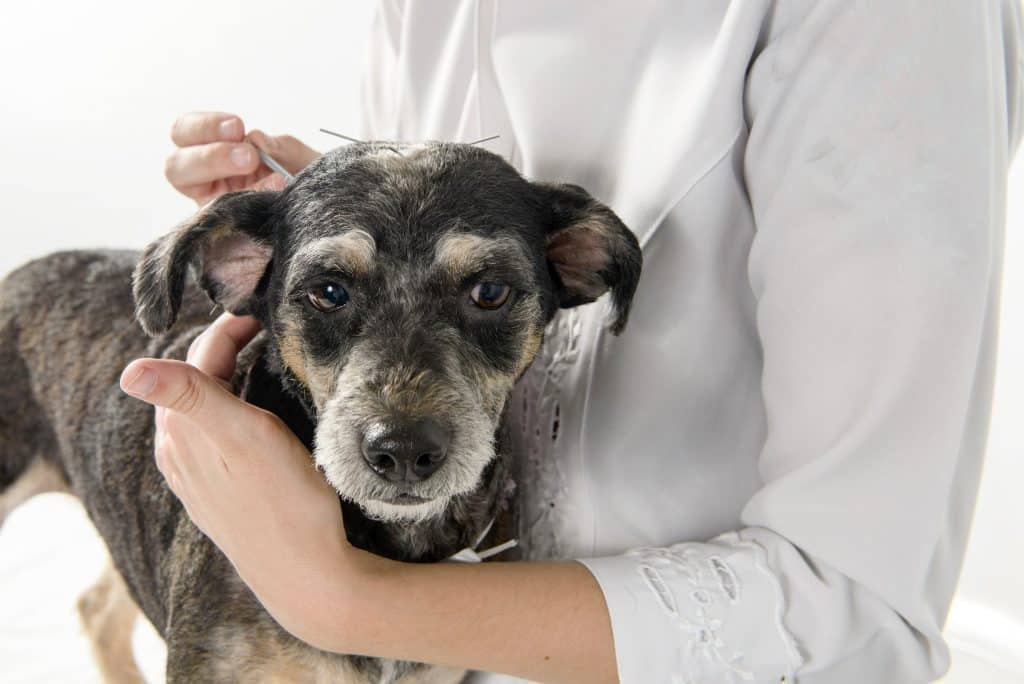
iStock/Elayne Massaini
- Arthritis and degenerative joint diseases: Osteoarthritis is a major cause of chronic pain in dogs, and acupuncture can help provide some relief. It’s also useful when treating IVDD in long-backed breeds like Dachshunds.
- Hip dysplasia: While acupuncture can’t resolve a malformed hip socket, it can offer relief from the pain caused by hip dysplasia.
- Cancer: Acupuncture can help relieve a number of side effects from cancer treatments, including nausea and fatigue.
- Hormonal or metabolic diseases: Symptoms of conditions such as diabetes mellitus, Cushing’s disease, and hypothyroidism may be helped by acupuncture. It can also offer benefits to dogs with liver, kidney, or heart disease.
- Idiopathic epilepsy: Research from the Innovative Veterinary Care Journal shows that acupuncture may help reduce the number of seizures observed in dogs with idiopathic epilepsy.
- Skin conditions and allergies: Acupuncture may help relieve conditions like allergic dermatitis and lick granulomas.
- Trauma: Acupuncture may help reduce the pain and inflammation caused by traumatic incidents like broken bones or road traffic accidents.
How Often Should My Dog Receive Acupuncture?
Appointment frequency depends on your dog and their condition. Your dog’s veterinary acupuncturist will develop a tailored treatment plan outlining everything you need to know.
Dr. Chasse says every dog is different when it comes to how quickly acupuncture will work. However, she says most clients notice a difference after just one treatment. Other times, it can take 3-5 sessions to really get the most benefit from it. It also depends on the condition being treated, as well as how cooperative the dog is for treatments.
How does dog acupressure work?
For dogs afraid of needles, acupressure can be a better alternative. Different than acupuncture, acupressure uses pressure instead of needles on the same specific points targeted during an acupuncture session.
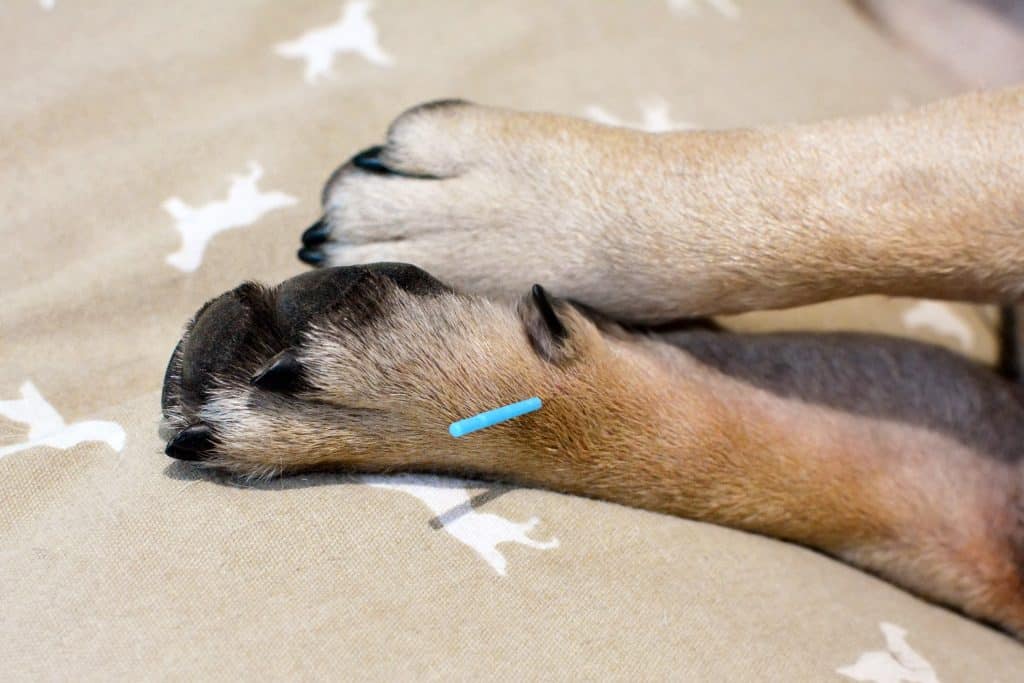
iStock/Firn
Where Are The Pressure Points On Dogs?
During an acupuncture session, needles are inserted into specific points on the body, known as acupuncture or acupressure points. Dr. Chasse says it would take many hours to go over every individual point on a dog because there are over three hundred of them! These points are found along the meridians, where energy is transmitted through a dog’s body.
“As just a few examples, there are a number of points located on either side of the spinal cord in a dog called the Bladder points,” says Dr. Chasse. She explains that the Bladder points make up the Bladder channel, which runs from the head to the tail. Each point along this channel has a different use and can target internal organs, such as the liver, kidney, and heart. The Bladder channel is also a common channel targeting back pain, and it helps break up tight muscles along the back.
Additionally, Dr. Chasse reveals that a point called Governor Vessel 20 (GV 20) sits atop a dog’s head and helps with relaxation. She says it’s possible a dog may become so relaxed during acupuncture that they will fall asleep.
A veterinary acupuncturist can locate the points corresponding to your dog’s specific condition and focus on those during an acupuncture session.
What To Expect During Dog Acupuncture
If you’re unsure what to expect during your dog’s first acupuncture session, here’s what you need to know. Dr. Chasse explains that an initial exam and treatment session takes around 45-60 minutes. During this first appointment, your vet performs a thorough exam, including gait analysis. Your vet examines your dog’s walk to detect any movement abnormalities. The goal is to ensure a correct diagnosis and treatment plan moving forward.
After your dog’s first session, subsequent sessions may be shorter, around 30-45 minutes. “Needles can be left in the dog for the entire session or placed and immediately removed,” says Dr. Chasse. “Every point and needle placed is carefully chosen to benefit the dog as a whole.”
Often the number of sessions reduces as your dog improves. The effects of acupuncture are cumulative, so for the best effect, repeated sessions are recommended. But the goal is to achieve the greatest improvement and maintain that level with the least treatments possible.
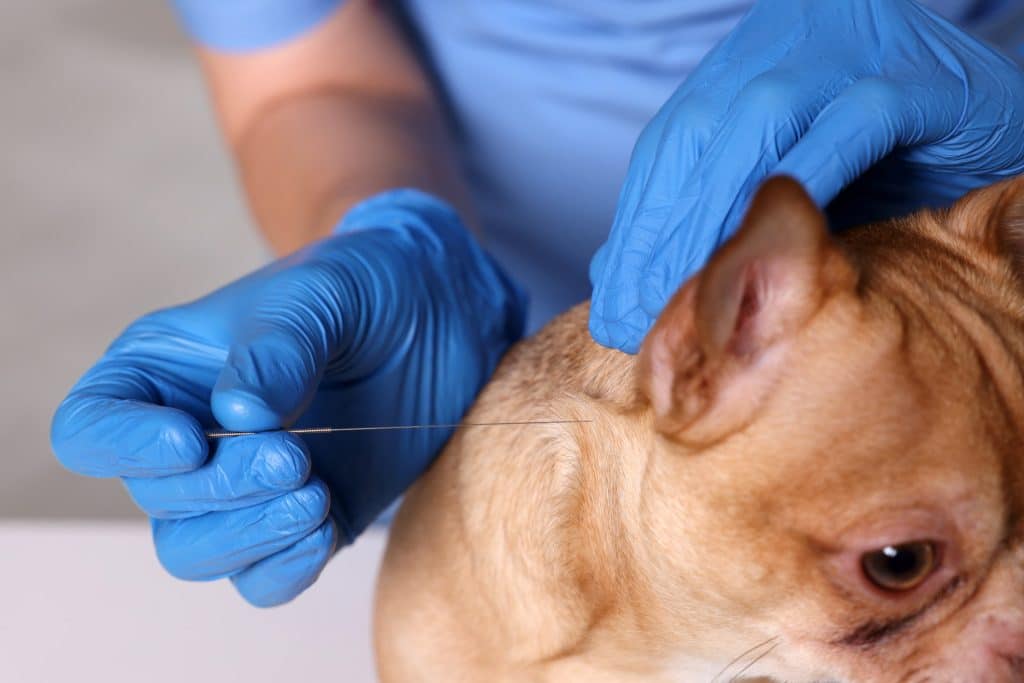
iStock/Liudmila Chernetska
What if my dog is anxious or scared during a session?
Most dogs don’t require sedation and may become very relaxed! But what if your dog is extremely anxious? Dr. Chasse advises that some dogs do need sedation for this procedure, but it depends upon the anxiety level of the dog. Pet parents can either administer a sedative at home before bringing their pet in for treatment, or the pet can be sedated at the hospital with intramuscular or intravascular sedation.
“The comfort of each dog is always priority number one,” stresses Dr. Chasse. “A positive experience is always the goal.” She notes that during most treatments, it’s very helpful to have treats on hand to distract the dog and positively reinforce the acupuncture treatment.
A veterinary acupuncturist can also tailor the session to suit each dog’s individual requirements. “It is possible to treat one side of the body and be able to have positive effects on both sides of the body,” says Dr. Chasse. “This is helpful if a patient is uncomfortable in a certain area and the sore spots would like to be avoided.”
Are There Side Effects Of Dog Acupuncture?
Acupuncture is extremely safe, and while side effects are rare, they can occur. Some side effects include the following.
- Sleepiness
- Bruising where needles have been inserted
- Soreness
- Mild bleeding
- Slight numbness
These typically resolve within 24-48 hours, but if you’re concerned, always speak to your vet.
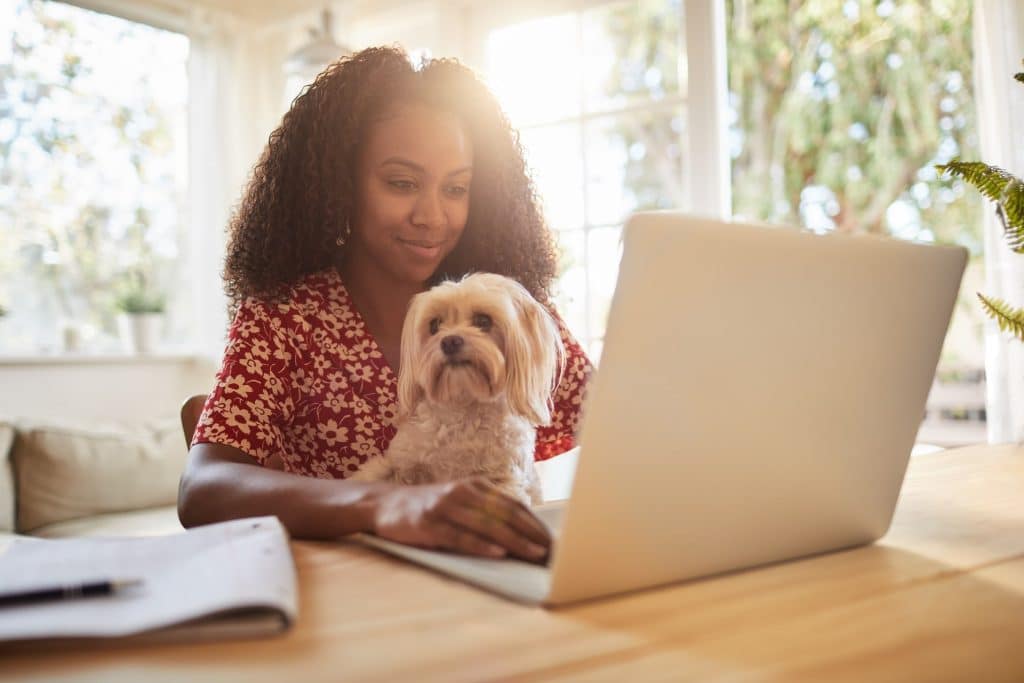
iStock/Goodboy Picture Company
What To Look For In A Veterinary Acupuncturist
While acupuncture can help relieve chronic pain, it’s important to find the right experts. To help you find a veterinary acupuncturist, here are the qualifications to look out for:
- Qualified in Western veterinary training (DVM or VMD in the US and RCVS in the UK)
- CVA-certified (Certified Veterinary Acupuncturist)
- Formal veterinary acupuncture training
“Only a certified Veterinary Medical Acupuncturist (cVMA) should perform acupuncture on animals,” says Dr. Chasse. Well-trained in anatomy, they can properly diagnose and formulate a treatment plan most beneficial for each individual pet. She notes that cVMAs have not only graduated from vet school, but they have obtained additional training and certification in veterinary acupuncture.
If you’re not sure how to source a reputable veterinary acupuncturist, try the databases for the American Academy of Veterinary Acupuncture (AAVA) and the International Veterinary Acupuncture Society, which can both be searched by location. Your regular veterinarian may also be able to advise you.
